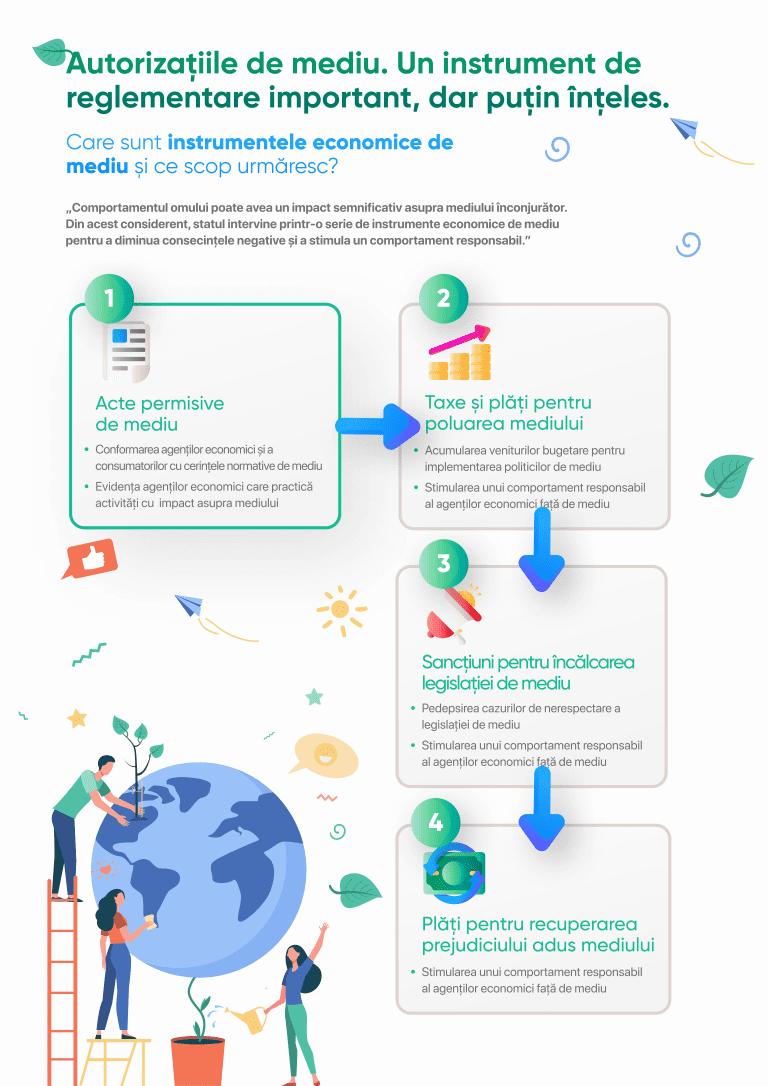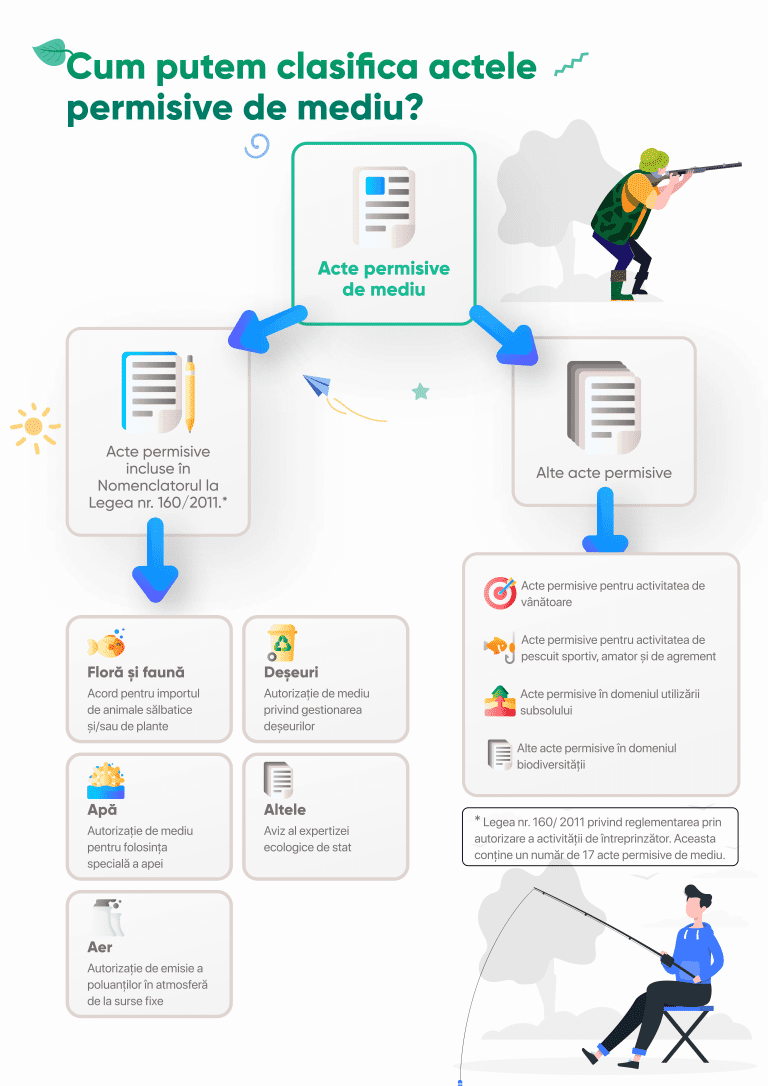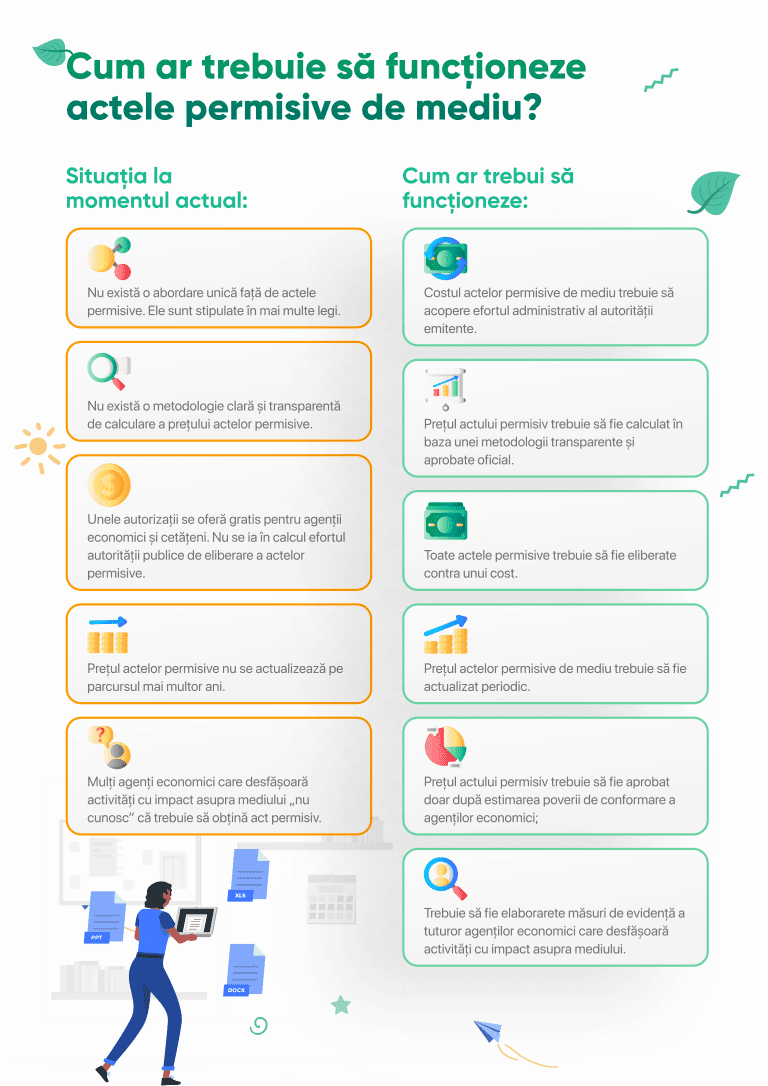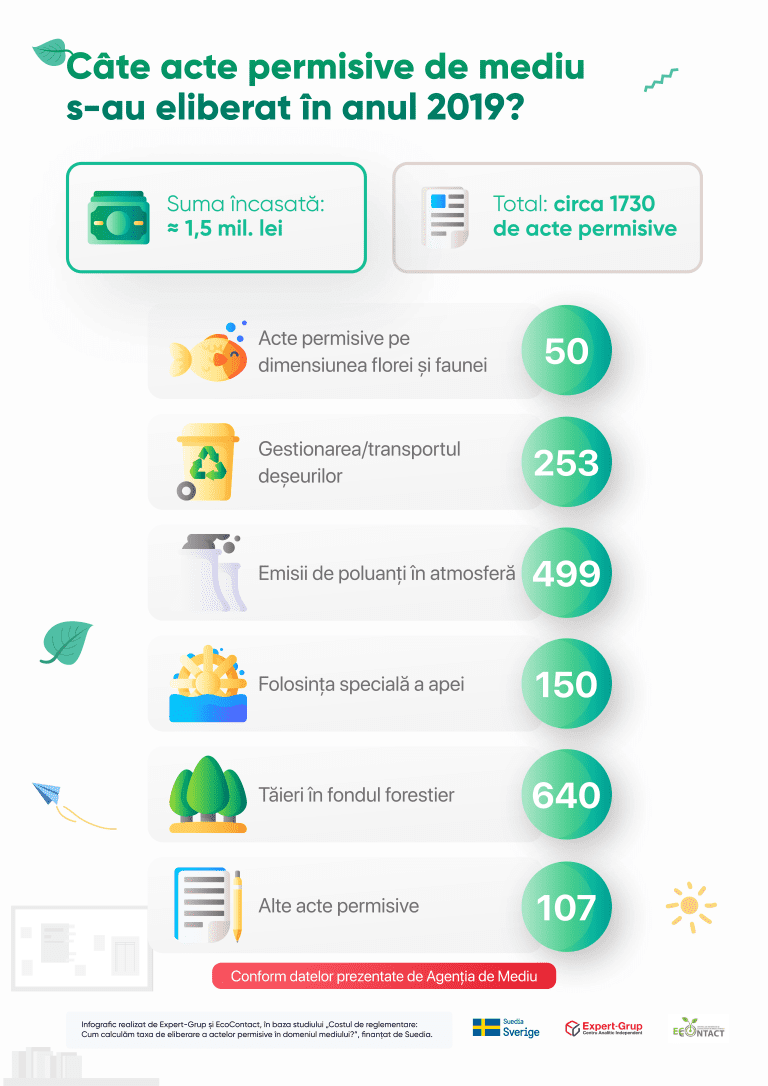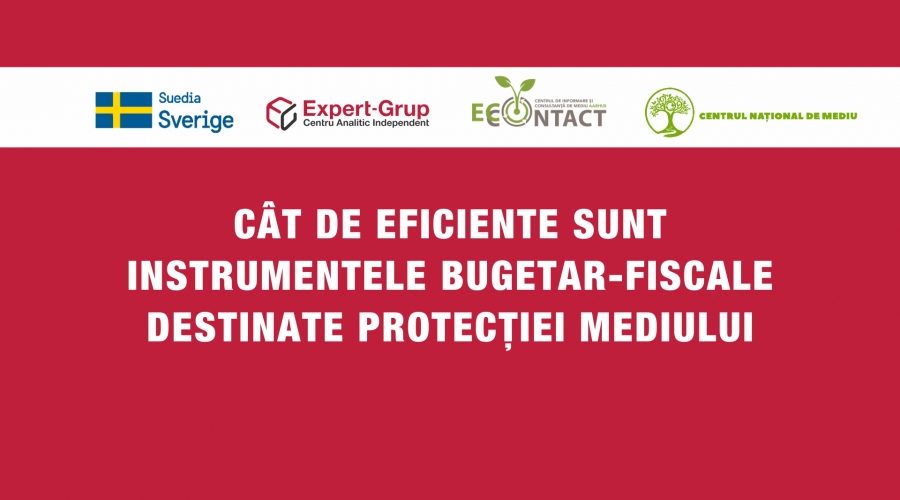The price of comfortable living in the 21st century is the damage that human activity brings to the environment. The impact of people and economic agents on the environment becomes, every year, more and more noticeable and impossible to ignore, and many of the developed countries have put this issue on the list of national priorities.
"Moldova is facing a double development problem. On the one hand, we have a weak economy with an insufficient level of industrialization. On the other hand, there are major pressures on the environment caused by ineffective management of natural resources and the environment in general. In this context, a new approach to environmental issues is required, they must become a real priority for the government, and not be treated separately or in contradiction with economic objectives", stated Adrian Lupușor, executive director of the "Expert-Group" Independent Analytical Center.
Although the Republic of Moldova faces major ecological problems, the state's current investments for environmental protection are still insufficient. It is one of the conclusions reached by the authors of the studies: "The cost of regulation: How do we calculate the fee for issuing environmental permits?" and "The application of fiscal-budgetary instruments in solving environmental problems", launched today, December 8, in a public event.
The studies were developed by the Independent Analytical Center "Expert-Grup", the Aarhus Environmental Information and Consultancy Center "EcoContact" and the National Center for the Environment, with the financial support of Sweden.
Virginia Bilici, representative of the Swedish Embassy in the Republic of Moldova: "These two studies combine environmental and economic expertise. Our intention, by supporting these studies, was to support the efforts of the Ministry of Agriculture, Regional Development and Environment, the Environment Agency and other government actors in ensuring good environmental governance".
The authors of the studies note the fact that the authorities of the Republic of Moldova must make environmental issues a priority: "The Republic of Moldova is not a big country, we could cross it in one day, but in the same day we could find so many environmental problems that have not been solved so far and that have been neglected due to the fact that environmental governance has never been a priority policy for our state. Through these studies we wanted to demonstrate how many environmental accruals and payments we make every year, but how few problems we solve", mentioned Ina Coșeru, president of the National Center for the Environment.
Iuliana Catarangiu, deputy director of the National Environment Center: "When we finalize the state's priorities, we must start from the premise that without air and water none of us would exist today. Without measures to remedy the situation and prevent pollution we are largely headed for self-destruction. For this reason, when the state reviews its areas of intervention, it must take this into account".
"The conclusion we reached is that in the Republic of Moldova, the receipts from environmental taxes do not significantly contribute to solving environmental problems. On the other hand, environmental spending is disproportionately distributed. An example would be that very few investments are made in sewage treatment plants or the fact that in certain years we have practically no expenditure on biodiversity", stated Alexandru Fală, "Expert-Group" program director.
Dumitru Pântea, program director, "Expert-Group", listed a series of problems regarding the issuance of permissive acts: – there is no single approach to permissive acts; – there is no clear and transparent methodology for calculating the price of permissive documents; – the price of permissive documents is not updated during several years; - several economic agents who carry out activities with an impact on the environment are not informed that they must obtain permits, etc.
"It is necessary to help the political framework, to make certain changes to the existing legislative framework and even to develop new acts, so that the economic aspects reflected in these studies have their value and applicability in the field of environmental protection and vice versa", Iordanca-Rodica Iordanov, executive director, AO "EcoContact".
In 2019, receipts from environmental taxes to the state budget were 4.9 billion lei or 2,3% of GDP, and the state's expenses for environmental protection were only 200 million lei, which means 0,1% of GDP, being the country with the lowest investments in the environment, relative to GDP, in Europe.
